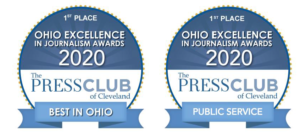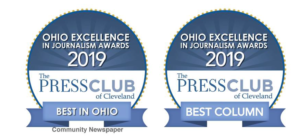 I just finished watching the DVD “No Impact Man: The Documentary”, about Colin Beavan and his wife and daughter spending one year modifying their urban lifestyle in order to have little or no impact on the environment. A few quotes and ideas that really struck me:
I just finished watching the DVD “No Impact Man: The Documentary”, about Colin Beavan and his wife and daughter spending one year modifying their urban lifestyle in order to have little or no impact on the environment. A few quotes and ideas that really struck me:
- “Nobody has to do what I do…We each just have to do whatever we can do.” (Beavan)
- “It’s not about using as little as I can use, but about finding ways to get what I need in sustainable ways.” (Beavan)
- A real moment of truth – for Mr. Beavan and for anyone viewing the film – when the community garden overseer bluntly points out the inconsistency between the idealistic no-impact lifestyle experiment and Michelle (Beavan’s wife) continuing with her high-powered career as a writer for Business Week – a print publication that is fueled by the existence of corporate entities and the consumption-based culture upon which they thrive. What difference does it make, he asks, if you’ve turned off your electricity and shop at the farmer’s market, only to go to work every day to continue sustaining the corporate structure of society that, in his opinion, is largely responsible for the problem in the first place?
 The last of these points got me thinking about why I chose to work in public libraries. The environment had nothing to do with it; it was all about being part of a system that supports the provision of materials and services that are accessible to everyone and don’t need to be bought over and over again. Basically: sharing, and not spending lots of money. When I worked in bookstores, my job was to push people to buy as much as possible, and what eventually didn’t make sense to me was pushing someone to spend $50 on a price guide for stamps or antiques – perhaps to only be used occasionally – that they could easily use at their local library for free. I wasn’t thinking about bringing down corporate America; it just seemed to make sense. Now, the bottom line is that public libraries rely on tax money to survive, and people can’t pay their taxes if they’re not working, and a lot of people who pay taxes work for corporations – so there is a very real dependence on big business, to some extent, even for sustainable systems like public libraries. Anyway, I think the community garden guy pointed out an important truth that is extremely uncomfortable for a lot of us to think about, because for some it may mean having to seriously consider changing their livelihood in order to line up their lifestyle with their conscience.
The last of these points got me thinking about why I chose to work in public libraries. The environment had nothing to do with it; it was all about being part of a system that supports the provision of materials and services that are accessible to everyone and don’t need to be bought over and over again. Basically: sharing, and not spending lots of money. When I worked in bookstores, my job was to push people to buy as much as possible, and what eventually didn’t make sense to me was pushing someone to spend $50 on a price guide for stamps or antiques – perhaps to only be used occasionally – that they could easily use at their local library for free. I wasn’t thinking about bringing down corporate America; it just seemed to make sense. Now, the bottom line is that public libraries rely on tax money to survive, and people can’t pay their taxes if they’re not working, and a lot of people who pay taxes work for corporations – so there is a very real dependence on big business, to some extent, even for sustainable systems like public libraries. Anyway, I think the community garden guy pointed out an important truth that is extremely uncomfortable for a lot of us to think about, because for some it may mean having to seriously consider changing their livelihood in order to line up their lifestyle with their conscience.
Day One of No Impact Week is today, and the focus is on consumption. I’m sitting here wearing a blue sweater that I’ve had since about 1993, pajama bottoms that I bought on 75% markdown at Target last spring, and some warm but godawful bright blue Snoopy slippers that I got at Marc’s last week for $2.99. The reason for all of this is mainly to save money – not to lessen my impact. I have no credit cards and will never have any again as long as I live, which means I have to spend within my means, wait and plan to make certain purchases, and have money set aside for emergencies. Going shopping when I’m bored or just antsy for something new is not an option unless my budget can swing it that particular day or week. I think the recession has made this a necessary lifestyle change for more and more people, and if they choose not to ignore a reduction in income by miring themselves in debt, people can find themselves living with less impact on the environment by just spending – and consuming – less.
So my act for today? I have to go grocery shopping for the week, but we have plenty of stuff in our cupboards that just isn’t getting used. I have an 8-year-old who’s a picky eater and a 16-year-old who’s a typical teenage eating machine, so the needs to be met are: from what we already have, can I come up with stuff that the Picky One will actually eat, and can I make what we have stretch for the Hungry One? Since we don’t have cows, I will buy milk. And my significant other has just been talked into baking some of his wonderful bread. Let’s try this.



Leave a Reply